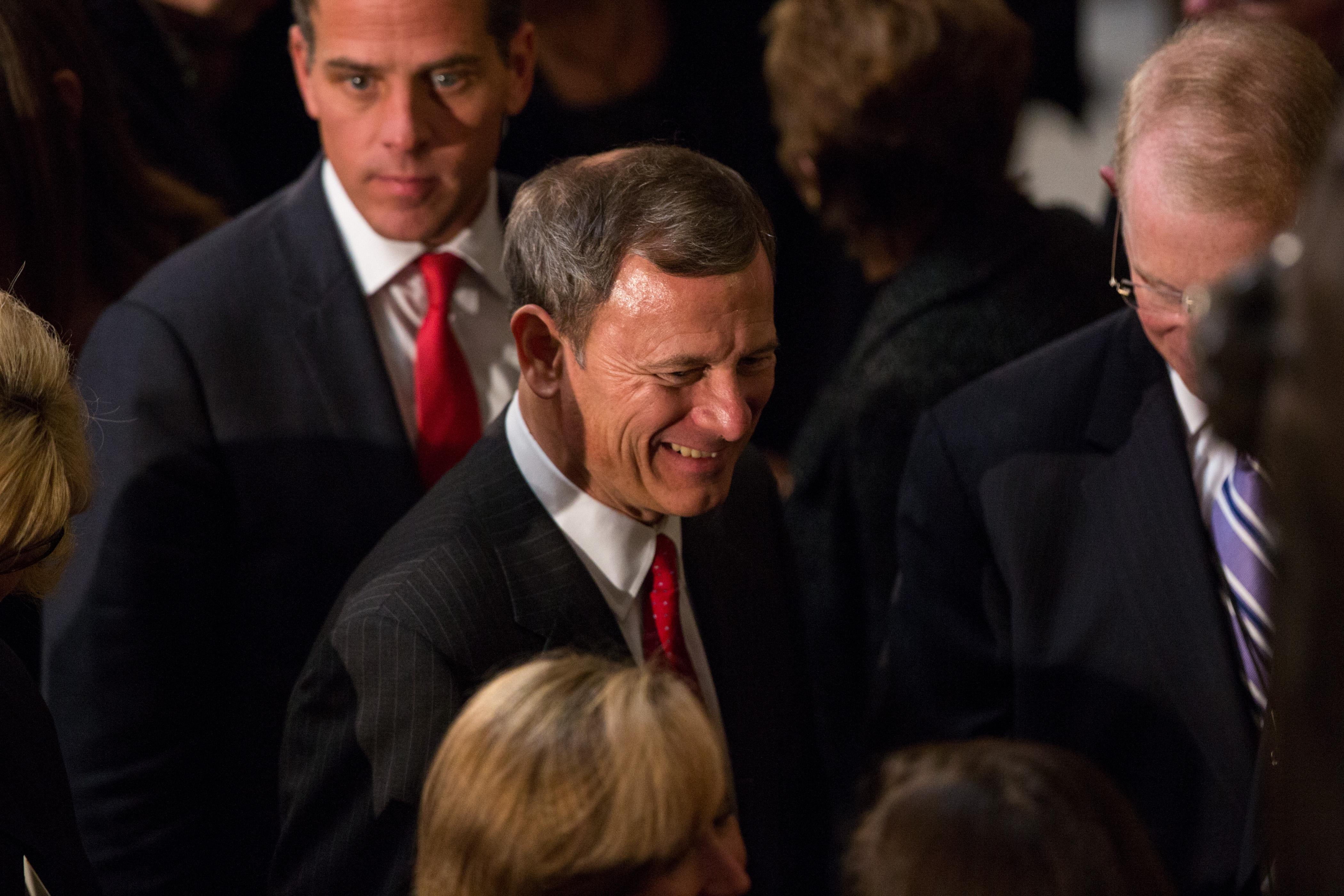Campaign finance reform is Chief Justice John Roberts’ bête noire. From the moment he joined the court, Roberts engineered a judicial revolution that overturned decades of precedent upholding reasonable restrictions on donations, solicitations, and expenditures. After Justice Samuel Alito replaced Justice Sandra Day O’Connor, Roberts had the votes to blast away one campaign restriction after another. And that he did, eventually masterminding the notorious Citizens United and calamitous McCutcheon v. FEC. After those catastrophes, it seemed Roberts would devote much of his tenure to obliterating every restriction on campaign finance under the theory that they violate millionaires’ constitutional freedom of speech.
On Wednesday, Roberts halted his crusade against campaign finance reform in a stunning reversal that almost nobody—myself included—saw coming. In Williams-Yulee v. Florida Bar, Roberts joined the liberals to uphold a Florida measure that barred elected judges from personally soliciting campaign funds. (This is only the second time Roberts has sided with the four liberals against four dissenting conservatives; the first time was in the 2012 Obamacare case.) In his opinion, Roberts explains:
Judges are not politicians, even when they come to the bench by way of the ballot. And a State’s decision to elect its judiciary does not compel it to treat judicial candidates like campaigners for political office. A State may assure its people that judges will apply the law without fear or favor—and without having personally asked anyone for money.
Roberts’ logic here is simple and commonsensical. A state’s judiciary can function healthily only if citizens are content that judges apply the law impartially. If a judicial candidate is permitted to personally ask individuals to donate to her campaign, she may be tempted to treat her donors more favorably in the courtroom. Even if the judge herself remains unbiased, a reasonable observer may still believe that when she rules in favor of a donor, his donation influenced her thinking—consciously or unconsciously. This risk of corruption, actual or perceived, is enough to justify Florida’s narrow, sensible restriction on speech.
Why, then, does the hypothetical risk of corruption not justify restrictions on legislative campaign finance and solicitation? Roberts doesn’t say, exactly—but the answer likely has something to do with judicial dignity. The conservative justices seemed skeptical of this notion at oral arguments, but between then and now, Roberts seems to have realized that permitting judges to panhandle would seriously undermine “public confidence in judicial integrity.” Roberts just isn’t that concerned about public confidence in legislative integrity—perhaps because he’s a judge, not a legislator, and understands that when judges beg people for money then rule in their favor, the principle of impartiality takes a huge hit. (On the other hand, Roberts seems to think that legislators voting in the interests of their highest donor is just democracy in action.)
Predictably, Justices Antonin Scalia, Anthony Kennedy, Clarence Thomas, and Samuel Alito bash Roberts’ logic in three scathing dissents. The conservatives’ vitriol over Florida’s modest rule demonstrates just how absurd their views on campaign finance have grown. Kennedy claims the court “locks the First Amendment,” imposes a “gag” on judicial candidates, and inflicts “dead weight” on a “silenced” public debate. Scalia goes on an unhinged rant about how judicial elections are necessary to serve judges “a hearty helping of humble pie.” This fulmination is nonsense, of course. Judicial elections are one of America’s most outrageous features, and the flood of money into judicial campaigns—especially post-Citizens United—is clearly damaging the integrity of our judiciary.
Roberts’ opinion on Tuesday won’t solve the problem of multimillion-dollar judicial elections, a problem he helped create with Citizens United. It will, however, encourage states to experiment with rules that help put breathing space between judges and the donors who may one day appear in their courtrooms. That alone won’t guarantee judicial impartiality in the 39 states that elect their judges. But after the Roberts court’s campaign finance revolution, it may be the most these states can do.
